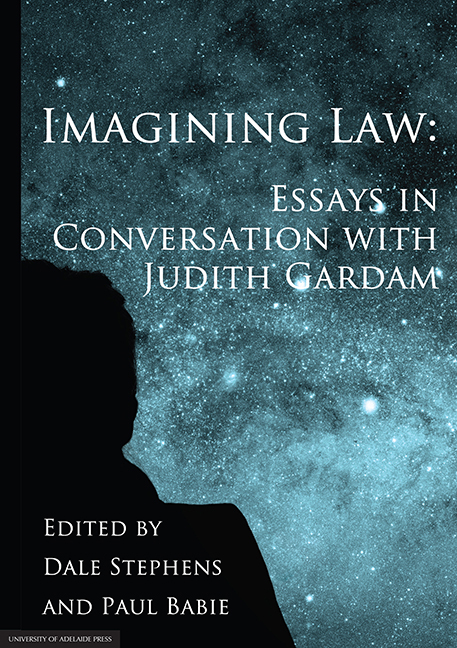Book contents
- Frontmatter
- Dedication
- Contents
- List of Contributors
- Acknowledgements
- 1 Introduction: Seeing Further over the Horizon – A World of Limitless Possibilities
- Part I
- 2 Energy and Law – Searching for New Directions
- Part II
- Part III
- Gender and Armed Conflict
- Gender and Feminist Concepts
- Theoretical Issues
- A Selected Bibliography
- Table of Cases and Materials
- Selected Index
2 - Energy and Law – Searching for New Directions
from Part I
Published online by Cambridge University Press: 05 August 2017
- Frontmatter
- Dedication
- Contents
- List of Contributors
- Acknowledgements
- 1 Introduction: Seeing Further over the Horizon – A World of Limitless Possibilities
- Part I
- 2 Energy and Law – Searching for New Directions
- Part II
- Part III
- Gender and Armed Conflict
- Gender and Feminist Concepts
- Theoretical Issues
- A Selected Bibliography
- Table of Cases and Materials
- Selected Index
Summary
It is a little known fact that Judith Gardam has a professional interest in energy law dating back to the beginning of her long and distinguished academic career. While energy law is not her major legal interest, or one for which she has built her international reputation, this interest has continued for over thirty years until the present time. Her first university position was as a Research Fellow at the Melbourne Law School, based at the University of Melbourne, financed by an Australian Research Council grant to Professor Michael Crommelin, and her major LLM thesis and her first four published articles were on the Australian law relating to hydrocarbon pipelines. Her interests in the energy sector later changed and expanded to include the link between energy and armed conflict and energy and human rights law. In both these areas, Judith was able to marry her interest in energy law with her major research focus on public international law.
The purpose of this chapter is to review the reasons for, and the current state of, international law in relation to the energy sector. It will then consider in detail the energy themes that motivate Judith and their possible evolution. As we will see, her emphasis is very much on sustainable energy solutions.
THE CURRENT STATE OF INTERNATIONAL ENERGY LAW
The role and development of public international law in the energy sector has been slow to be recognised and has been late in development. Historically, energy policy and law have been strongly linked to national sovereignty and have been considered to be outside the role of international agreements. As recently as 1992, when Agenda 21 was negotiated internationally at the United Nations Conference on Environment and Development (UNCED), it proved impossible, due to competing national interests, for the international community to agree on a chapter on energy policy. Chapter 9 of this instrument, which was originally envisaged as a comprehensive chapter on energy, proved impossible to negotiate and was eventually replaced by a loosely worded chapter on the atmosphere, which makes only selective and limited references to sustainable energy solutions.
- Type
- Chapter
- Information
- Imagining LawEssays in Conversation with Judith Gardam, pp. 13 - 34Publisher: The University of Adelaide PressPrint publication year: 2016



